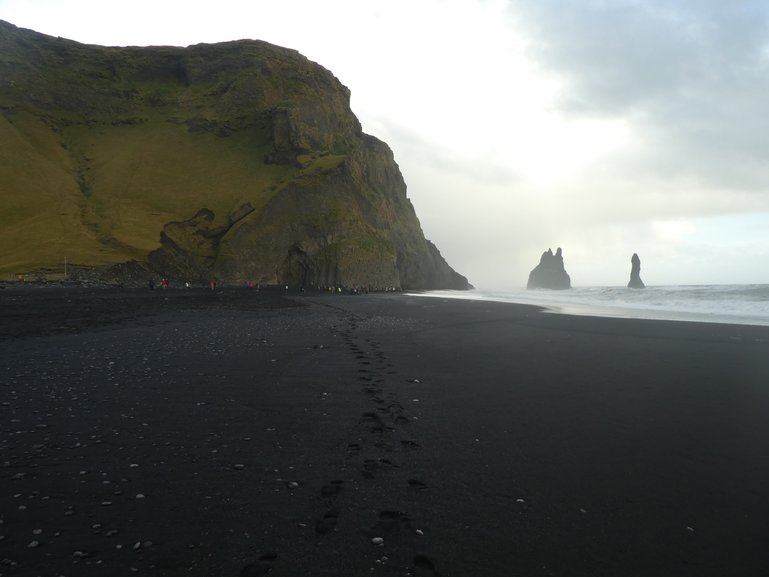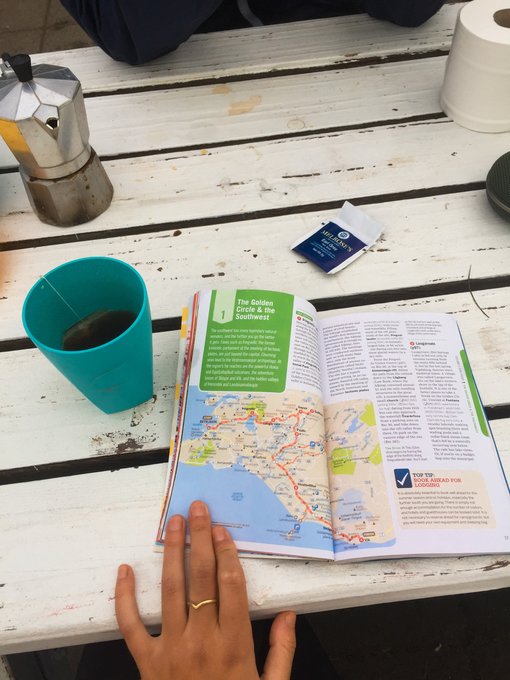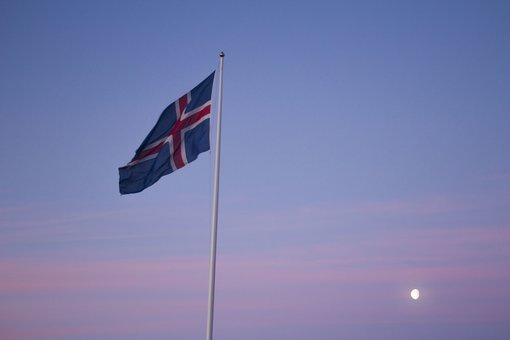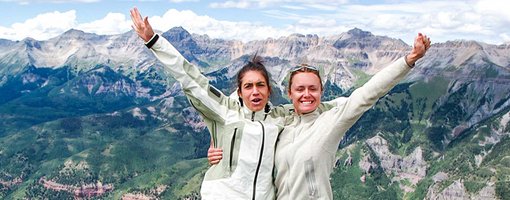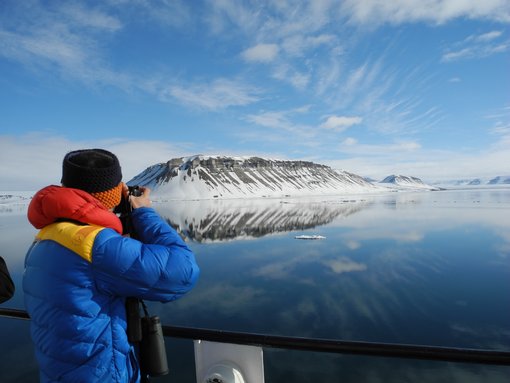The south coast is one of Iceland’s most visited sightseeing areas, stretching from the capital region Reykjavik to the black beaches of Jokulsarlon glacier lagoon in the east. The density of waterfalls, glaciers, beaches, volcanoes, habitats, and villages make this region an excellent place to start your Iceland experience and get a taste for what the country has to offer. Whether you have a day or a week, rent a car and drive yourself, or hop on a tour, there is no much to see in this small area that we won’t even attempt to cover it all here.
Getting There
Iceland’s Route 1 highway, commonly called the Ring Road, provides a route around the entirety of the island country, and offers an accessible means of visiting all of the main attractions along the south coast. Most of the stops on the south coast are accessible within a day’s drive, so you will see many tour buses packed with people seeking day excursions from Reykjavik or hoping for a quick glimpse of the Icelandic countryside while on a layover from Europe. We decided the best option for us on our visit to Iceland was to rent a car and drive the entire Ring Road ourselves.. Disclaimer: this is very expensive, even more so if you have to add additional car insurances based on Iceland’s erratic weather. Most of our favourite things we saw in Iceland were along the south coast stretch, so if you're in Iceland and want to see the south coast on a tighter budget, you can rent a car for only aday or two, or book a tour bus and enjoy the ride.
Being There
How much is there to see on the south coast? A lot. You will have to get strategic about what you are going to take time to stop and see if you have a day. 2 to 3 days in the area will give you much more flexibility with numbers of stops you can take and time spent at each sight. After researching every possible attraction, these were the ones that made the cut on our Icelandic road trip, and is a starting part for your trip planning:
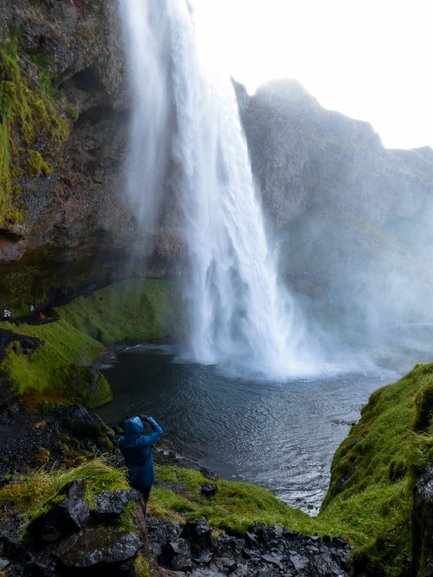
Standing behind Seljalandsfoss
Seljalandsfoss
The first stop almost 2 hours drive from Reykjavik was our first foss (“foss” in Icelandic means “falls”). This foss has a height of 60m (200ft) and originates under the glacier covering the volcano that erupted in 2010, causing disruption at airports all across Europe. The distinguishing feature of Seljalandsfoss is the pathway that wraps around and under the falls, allowing visitors to experience the cascading water from behind. If you take this route, prepare to get soaked and watch out for very slippery rocks, as the mist and constantly changing winds can push the falling water in all directions. This is the only stop on the south coast that costs anything: a few Krona for parking.
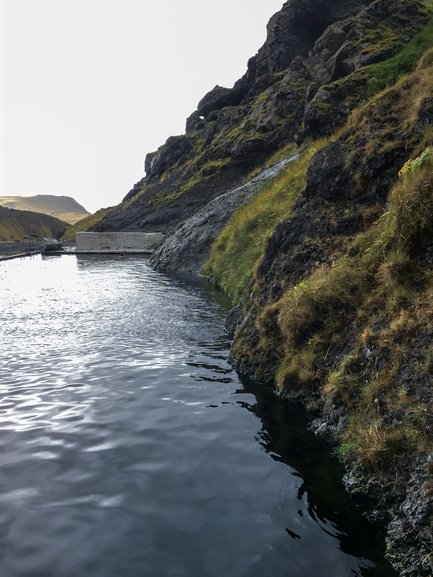
Naturally fed swimming pool.
Seljavallalaung Swimming Pool
Built in 1923 into the side of the mountain, this swimming pool’s original intent was to be a place for children to learn how to swim. It is accessible by a not always well defined trail, about a 20 minute walk from the parking lot. We didn’t actually get in the pool (it is not cleaned often, so enter at your own risk) but the hike up to and the pool itself were stunning and worth the stop.
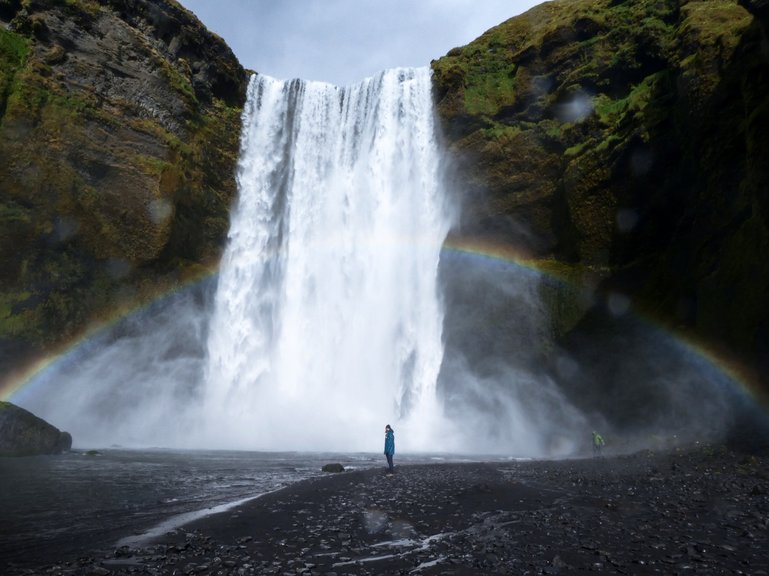
Underneath Skogafoss
Skogafoss
This one might be the most spectacular waterfall you will see, at a width of 25m (82ft), a 60m (197ft) drop, Skógafoss has a constant rainbow anytime the sun is out due to the quantity of spray the falls produce. If you come prepared in full waterproof gear, you can get a lot closer to the falls than most day tourists. You can also see the falls from a view deck above, which requires navigating a steep staircase to get up the side of the cliff. There is a local legend that one of the first viking settlers in the area buried a chest of gold in a cave behind Skogafoss, and when years later villagers tried to retrieve it, the gold ring handle broke off and the chest fell into the water to be lost forever. While we didn't find gold, the town of Skoga adjacent to the falls does have a charming folk museum, restaurant, hotel, and hiking options.
Solheimajokull
8km long and 2km wide, Sólheimajökull is a massive glacier that is unfortunately shrinking rapidly due to climate change. If you have time and are feeling adventurous, there are half and full day walking tours that take you right out on top of the glacier. If this is a quick stop, you can walk a short trial up to a viewpoint and get a sense of how much this glacier has started to recede.
Solheimasandur Plane Wreck
We did not actually get to stop here, our one regret of the trip, but still felt we couldn’t leave it out of our suggestions. Solheimasandur is a massive glacial plain. When volcanic eruptions happen under nearby glaciers, this area becomes covered with rushing flood water. Vehicles are not allowed out onto the plane, so if you want to see the iconic plane wreck you’ll have to stop at a parking lot just off the Ring Road, and walk about 45 minutes out to the plane. This US Navy plane was flying over the area in 1973 when it ran out of fuel and the pilot had to make an emergency landing. The deteriorating wreckage hasn’t been moved in decades, surrounded by endless black sand beaches it has become a popular and eerie tourist sight.
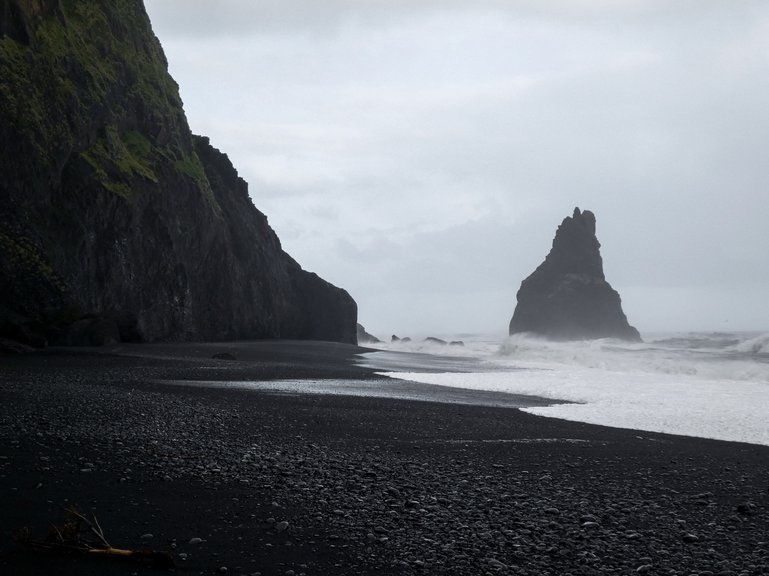
Black sand beaches of Reynisfjara
Reynisfjara
By far our favourite landscape in Iceland, the “Black Sand Beach” just outside of the town of Vik is known of its pitch black sand, extreme weather, and distinct rock features. The cliffs at the ocean edge are composed of hexagonal basalt columns, which according to Icelandic folklore, were once trolls who ventured out too late at night and were caught outside when the sun peaked over the horizon, turning them to stone. Another story tells of a husband whose wife was kidnapped and killed by trolls. He followed the trolls to the beach where we froze them, avenging his wife and ensuring they’d never hurt anyone again.
All of these sights are possible to see within one day if you are extremely ambitious and do not linger too long in any spot. Directly from Reykjavik to Reynisfjara is under a 3 hour drive. If you want to return to Reykjavik at the end of the day, or if you are on a guided tour, you likely will not have much time to stay and enjoy each site. If you have a car rental, we would recommend splitting this itinerary into two days, spending a night in Vik and driving back on the second day. One of the joys of Iceland is there is so much to see and so many ways to customize your visit, it is impossible to leave without feeling like you’ve experienced at least some of the country’s unique sights and landscapes.
